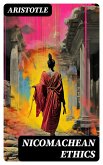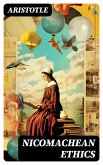Benedictus de Spinoza's "Ethics" is a groundbreaking philosophical treatise that explores the nature of reality, human emotion, and the relationship between God and the universe. Written in a geometrical style reminiscent of Euclidean geometry, Spinoza presents his ideas systematically through definitions, axioms, and propositions, forging a unique blend of metaphysics, epistemology, and moral philosophy. The work challenges conventional theology by positing a pantheistic view of God, which reframes divine intelligence as synonymous with the natural order, thereby inviting readers to reconsider the intersection of science and spirituality in the context of the 17th-century Enlightenment movement. Spinoza, a Jewish-Dutch philosopher, was excommunicated from his synagogue for his radical ideas and heretical views, which deeply influenced his philosophical inquiries. This exile from traditional beliefs propelled him to develop a rigorous ethical framework rooted in rationality rather than dogma, emphasizing human freedom and the pursuit of knowledge. His lifelong engagement with the works of Descartes and the scientific advancements of his time provided a fertile ground for formulating his revolutionary ideas in "Ethics." Readers seeking to grapple with profound questions of existence, morality, and the human condition will find "Ethics" both challenging and illuminating. Spinoza's work invites contemplation and encourages the cultivation of reason as a path to understanding the universe and one's place within it, establishing it as essential reading for anyone interested in philosophy, theology, or the sciences.
Dieser Download kann aus rechtlichen Gründen nur mit Rechnungsadresse in A, B, BG, CY, CZ, D, DK, EW, E, FIN, F, GR, H, IRL, I, LT, L, LR, M, NL, PL, P, R, S, SLO, SK ausgeliefert werden.









